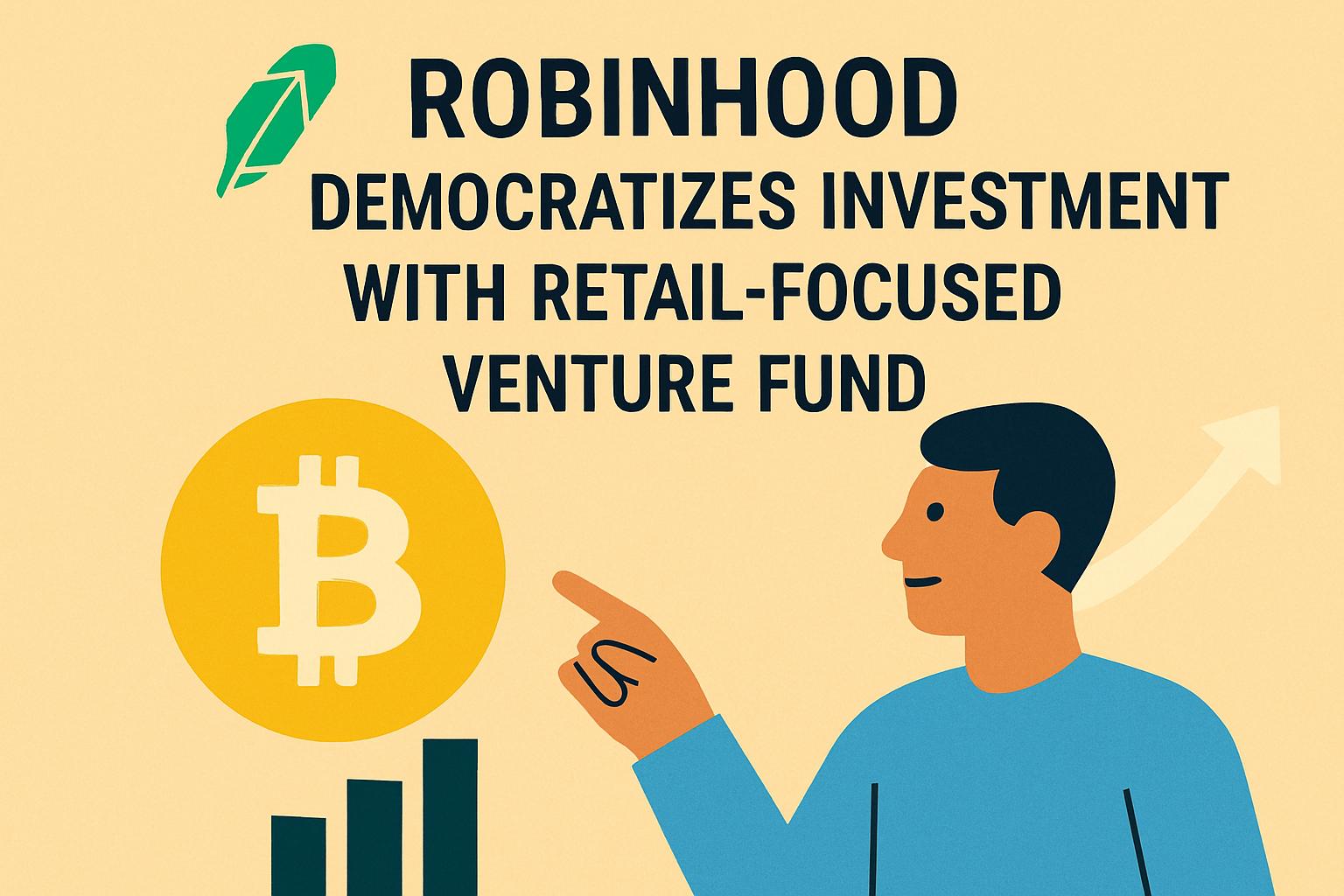Robinhood is once again at the forefront of financial innovation, challenging traditional investment norms by introducing a new venture fund geared towards retail investors. Named the Robinhood Ventures Fund I (RVI), this closed-end fund has been filed with the U.S. Securities and Exchange Commission (SEC) and is set to trade on the New York Stock Exchange. By doing so, Robinhood aims to break the mold of venture investing, historically reserved for institutions and wealthier investors, and open doors to the everyday investor.
Opening Access to Private Investment
Traditionally, early-stage private markets have required participants to be qualified investors—typically, large institutions or individuals with significant net worth. Retail investors often find themselves on the outside looking in. Robinhood’s push to register RVI with the SEC symbolizes a bold move towards inclusivity in the investment landscape, leveraging their reputation to assuage concerns over potentially volatile or risky investments.
While specifics of the industries targeted by this fund are not disclosed, it’s likely to focus on fast-growing sectors like artificial intelligence, blockchain, space technology, and life sciences. This strategic move could soon allow ordinary investors to indirectly buy into giants like SpaceX and OpenAI by purchasing fund shares on a public trading platform.
Challenging the Elite Stronghold on Private Equity
Robinhood CEO Vlad Tenev has been vocal about his vision for democratizing investment. In a recent post on X, he highlighted the disparity that leaves average investors out of lucrative pre-IPO opportunities, which have long been monopolized by the wealthy: “For decades, the rich had exclusive access to private investing, while average people could only watch from the sidelines. Robinhood Ventures changes that, putting retail investors and elites on equal footing.”
Omar, a partner at Dragonfly, added his perspective, likening Robinhood’s initiative to creating a public version of a powerhouse venture firm like Sequoia Capital. He sees RVI as a product tailored to retail investors, harnessing trust in Robinhood’s brand to mitigate fears of poor investment selections.
The Path to A Financial “Super App”
Robinhood’s ambitions extend beyond venture funds. The company has been actively acquiring platforms like Bitstamp and WonderFi, exploring tokenized stocks, and integrating social features into their offerings. This strategy aims to create an intuitive, all-encompassing platform, enhancing its appeal to retail investors, the younger generation, and mobile users.
The introduction of RVI complements these efforts by providing a dual focus: expanding access to private equity for retail investors while further embedding itself within the burgeoning fields of crypto and digital finance. Robinhood is positioning itself as a vital component of the next-generation financial infrastructure.
A New Dawn for Retail Investors?
The creation of Robinhood Ventures Fund I marks a significant milestone in Tenev’s vision of democratized investing. If approved by the SEC, it will offer retail investors their first real opportunity to invest in private unicorns via a public market. This development could potentially redefine the investment playing field.
However, alongside these opportunities comes risk. The inherently high volatility of startup valuations and the asymmetry of information present challenges to retail investors. Whether they can navigate these complexities successfully remains to be seen.

![[News] Bitcoin at a Turning Point? 10x Research Signals a Bullish Macro Shift Ahead](https://cryptoexplores.com/wp-content/uploads/2025/06/new20250616.jpg)
![[News] Binance Lists $HOME, the Gas-Free, Bridge-Free All-in-One DeFi App](https://cryptoexplores.com/wp-content/uploads/2025/06/news20250617.jpg)